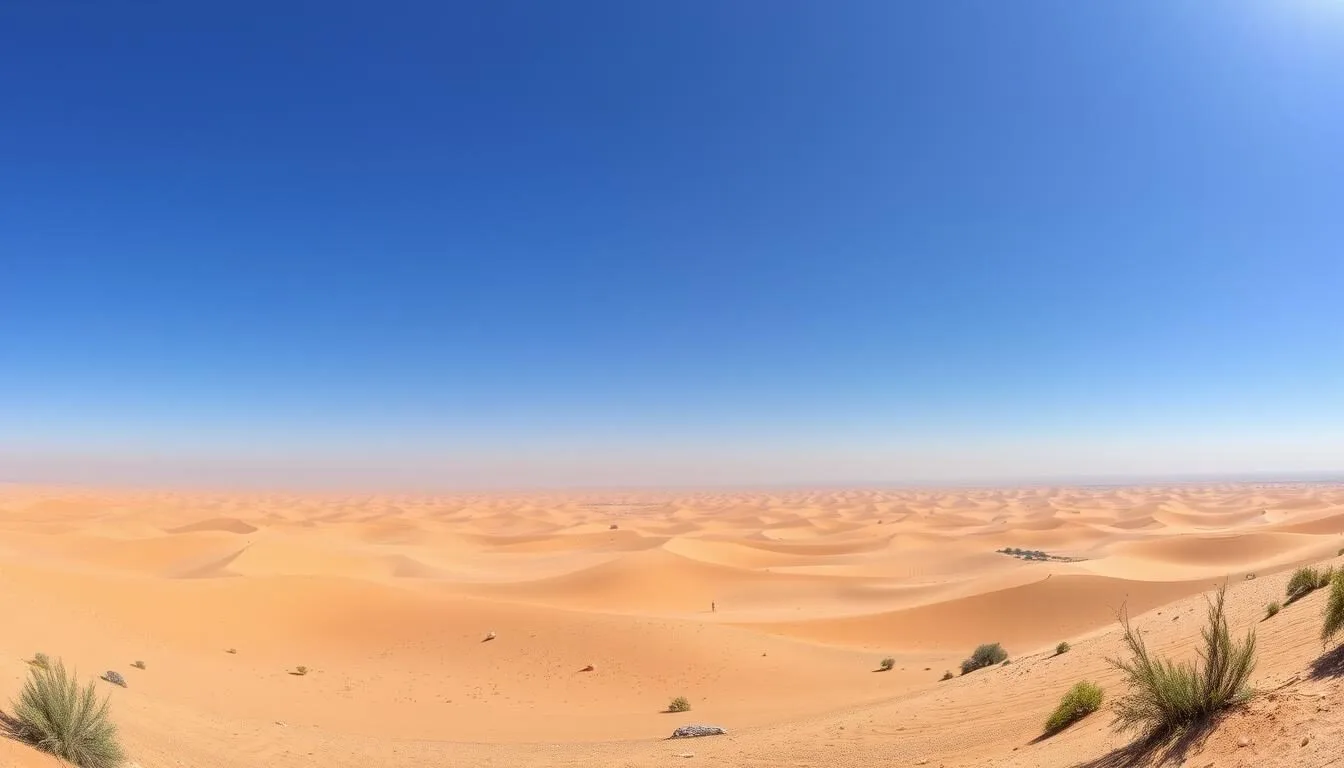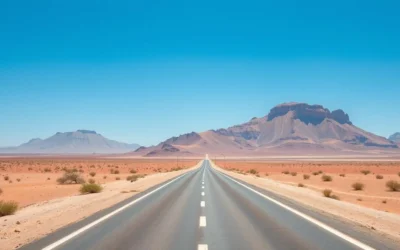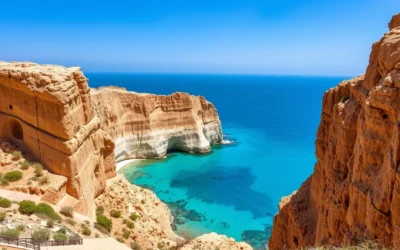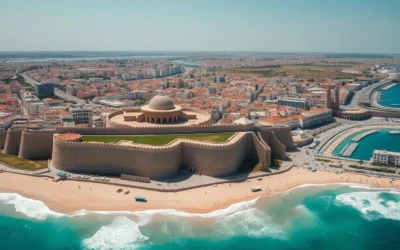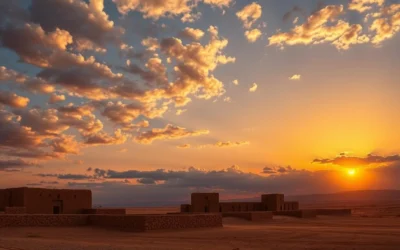Did you know that Jebil National Park is Tunisia’s second-largest protected area, spanning an impressive 150,000 hectares of pristine Sahara desert? This vast wilderness, established in 1994, represents one of North Africa’s most authentic desert experiences, where golden dunes meet rocky outcrops and rare wildlife roams freely across an ancient landscape that has remained largely unchanged for millennia.
The breathtaking landscape of Jebil National Park showcases Tunisia’s portion of the Grand Erg Oriental
Best Time to Visit Jebil National Park
Timing your visit to Jebil National Park is crucial for a comfortable and enjoyable experience. The Sahara’s extreme climate means planning around the seasons is essential for travelers.
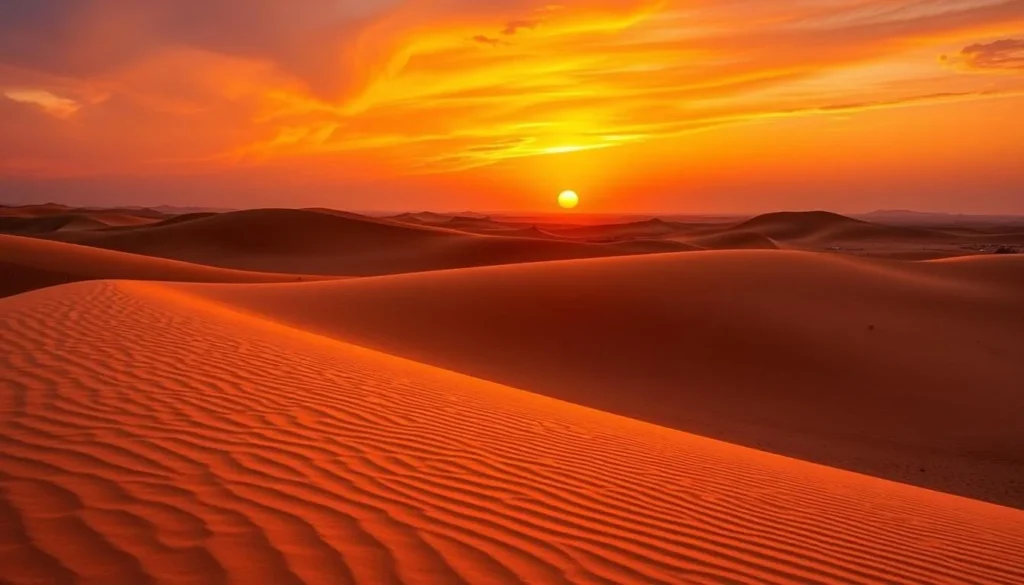
Spectacular sunset views await visitors during the moderate seasons at Jebil National Park
Seasonal Guide to Jebil National Park
Recommended Seasons:
- October to November (Fall) – Ideal temperatures between 20-25°C (68-77°F) with cool evenings and excellent visibility for wildlife spotting
- February to April (Spring) – Pleasant daytime temperatures of 18-24°C (64-75°F) with occasional desert blooms after winter rains
Seasons to Avoid:
- June to August (Summer) – Extremely hot with temperatures regularly exceeding 40°C (104°F), making outdoor activities dangerous
- December to January (Winter) – Cold nights dropping to 5°C (41°F) or below, though daytime temperatures remain mild
April is generally considered the most moderate month, offering warm sunny days and cooler evenings perfect for desert exploration and stargazing.
Ready to plan your desert adventure?
Check flight availability to Tunisia for your preferred travel dates.
Getting There & Planning Your Journey
Reaching Jebil National Park requires some planning as it’s located deep in Tunisia’s southern desert region. The journey itself becomes part of the adventure, taking you through changing landscapes from coastal areas to the heart of the Sahara.
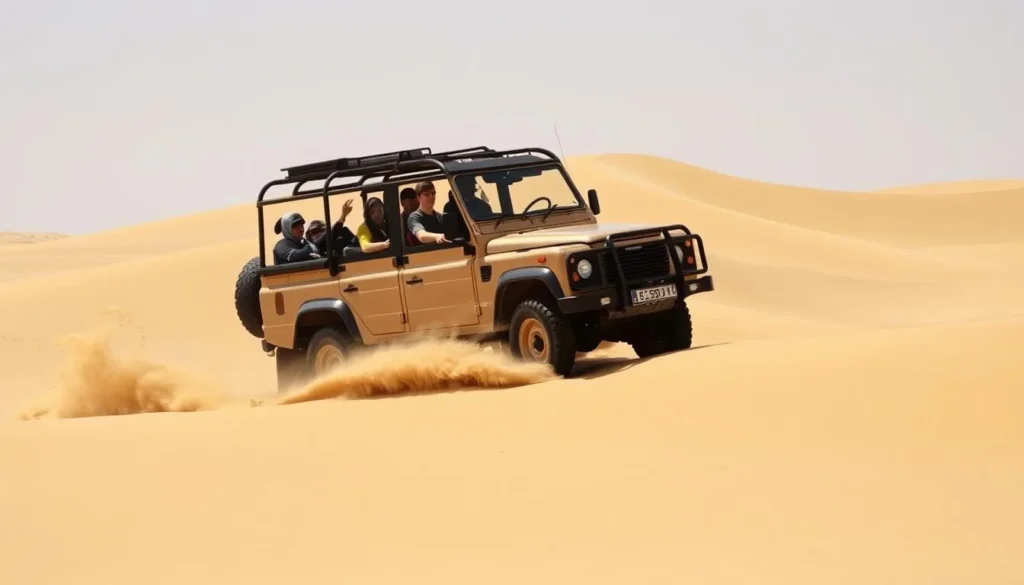
A 4×4 vehicle is essential for navigating the sandy terrain of Jebil National Park
From Tunis (Capital City)
- By Air: Fly from Tunis to Tozeur (1 hour), then arrange a 4×4 transfer (3-4 hours)
- By Road: Drive south via Gafsa and Kebili to Douz (7-8 hours), then take the desert track to the park (3 hours)
From Coastal Cities
- From Gabès: Drive to Douz (3 hours), then continue to the park entrance (3 hours)
- From Djerba: Travel to Douz (4 hours), then proceed to the park
Essential Transportation Tips
- A 4×4 vehicle is mandatory for park access – regular cars cannot navigate the sandy terrain
- Consider joining an organized tour from Douz if you don’t have desert driving experience
- Carry extra fuel, water, and emergency supplies
- Inform someone of your travel plans before entering the park
- GPS coordinates for park entrance: 32°54’4″N 9°9’25″E
Need transportation for your desert adventure?
Rent a suitable 4×4 vehicle to explore Jebil National Park safely.
Where to Stay Near Jebil National Park
While there are no permanent accommodations within Jebil National Park itself, visitors have several options ranging from authentic desert camps to comfortable hotels in nearby towns. Each option offers a different experience of the Saharan environment.

Traditional Bedouin tent camps offer an authentic overnight desert experience
Desert Camps
- Zmela Labrissa Camp – Authentic Bedouin tents with traditional furnishings
- Mars Camp – Luxury desert camping with comfortable amenities
- Grand Erg Camp – Mid-range option with excellent stargazing opportunities
Price range: 80-200 TND (25-65 USD) per night
Douz Accommodations
- Hotel Sahara Douz – Comfortable hotel with pool and desert views
- Mehari Douz – Mid-range option with traditional architecture
- La Rose Des Sables – Budget-friendly hotel with basic amenities
Price range: 120-350 TND (40-115 USD) per night
Ksar Ghilane Options
- Pansea Ksar Ghilane – Luxury tented camp near thermal springs
- Campement Yadis Ksar Ghilane – Comfortable desert oasis accommodation
- Palm Beach Ksar Ghilane – Mid-range option with palm grove setting
Price range: 150-450 TND (50-150 USD) per night
Pro Tip: Book desert camps in advance during peak season (October-April). Most camps include dinner and breakfast in their rates, often featuring traditional Tunisian cuisine prepared over open fires.
Find your perfect desert accommodation
Browse available options in Douz and surrounding areas for your Jebil National Park adventure.
Top Activities & Experiences in Jebil National Park
Jebil National Park offers visitors a range of activities that showcase the beauty and cultural significance of this Saharan wilderness. From adrenaline-pumping adventures to peaceful natural experiences, there’s something for every type of traveler.

Camel trekking through the dunes offers an authentic way to experience the Sahara
Essential Experiences in Jebil National Park
1. Desert Safari Tours
The most popular way to explore Jebil is through organized 4×4 excursions. These tours typically last 1-3 days and include professional guides who know how to navigate the challenging terrain safely. Longer tours often include overnight stays in desert camps, meals, and cultural experiences with local Bedouin communities.
2. Camel Trekking
Experience the desert as travelers have for centuries on a traditional camel trek. Options range from 1-hour rides to multi-day expeditions. The slower pace allows you to fully appreciate the tranquility of the desert and offers excellent photography opportunities, especially during sunrise or sunset.
3. Wildlife Observation
Jebil National Park was established primarily to protect endangered species like the Dorcas gazelle and Barbary sheep. Early morning or late afternoon guided wildlife tours offer the best chances to spot these elusive animals, along with fennec foxes, desert hares, and various reptile species.

The fennec fox is one of the iconic desert species that can be spotted in Jebil National Park
4. Stargazing
With minimal light pollution, the Sahara offers some of the world’s most spectacular night skies. Many desert camps offer guided stargazing sessions where you can identify constellations and planets while learning about traditional Bedouin celestial navigation techniques.
5. Photography Expeditions
The dramatic landscapes of Jebil National Park provide endless opportunities for photography enthusiasts. The changing light throughout the day creates different moods and textures across the dunes, while the clear air allows for exceptional long-distance shots.
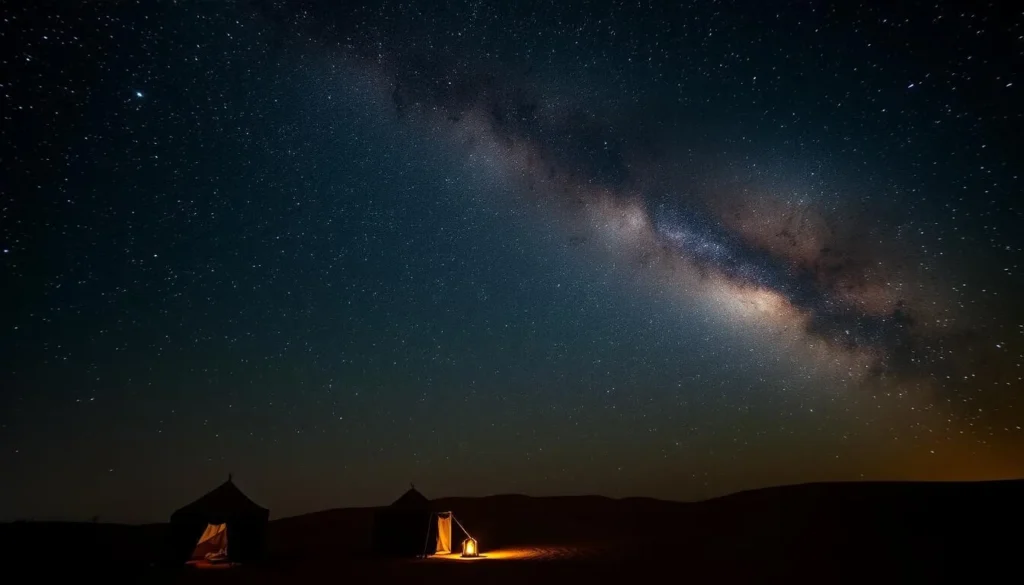
The clear desert skies of Jebil National Park offer spectacular stargazing opportunities
Cultural Experiences
- Bedouin Tea Ceremonies – Experience traditional hospitality with mint tea prepared over open fires
- Desert Music – Evening performances featuring traditional instruments and songs
- Bread Making – Learn how to prepare traditional bread baked in the sand
Adventure Activities
- Dune Boarding – Slide down the steep sand dunes on specialized boards
- Desert Hiking – Guided walks to explore the diverse terrain and geology
- Quad Biking – Adrenaline-pumping rides across designated routes (outside protected areas)
Practical Information & Travel Tips
Preparing properly for a visit to Jebil National Park is essential for a safe and enjoyable experience. The remote desert location requires specific considerations that may differ from other tourist destinations in Tunisia.
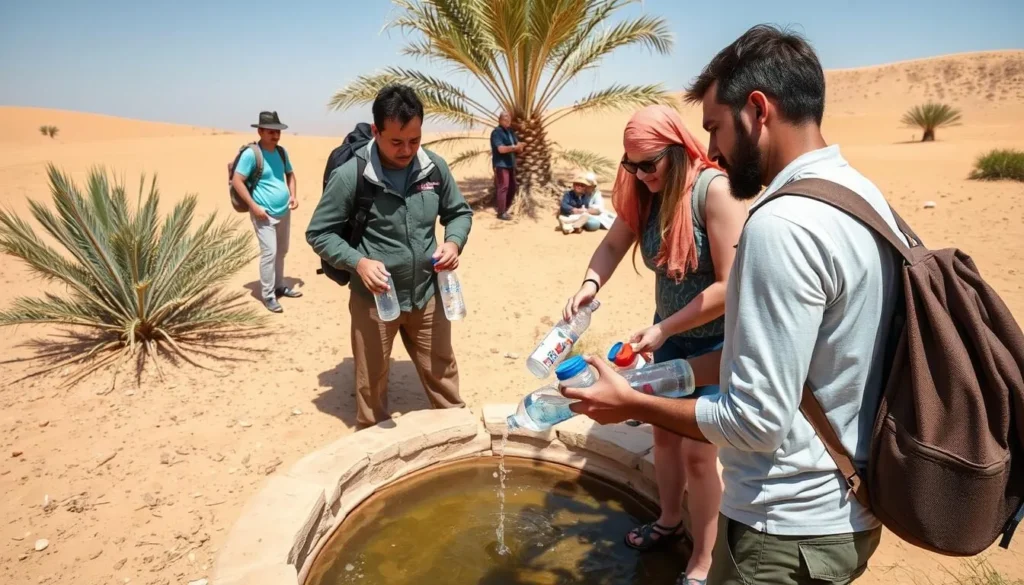
Staying hydrated is crucial when exploring the arid environment of Jebil National Park
Essential Packing List
- Wide-brimmed hat and sunglasses
- High SPF sunscreen and lip balm
- Light, loose-fitting clothing (long sleeves/pants)
- Warm layers for cold desert nights
- Sturdy closed-toe shoes or boots
- Personal water bottle (2L minimum)
- Basic first aid supplies
- Flashlight or headlamp
Health & Safety
- Drink 3-4 liters of water daily to prevent dehydration
- Apply sunscreen regularly, even on cloudy days
- Rest during the hottest hours (11am-3pm)
- Inform your accommodation of any medical conditions
- Carry any necessary medications
- Check with your doctor about vaccinations
- Purchase comprehensive travel insurance
Local Etiquette
- Dress modestly when visiting local communities
- Ask permission before photographing people
- Remove shoes when entering tents or homes
- Accept tea when offered (a sign of hospitality)
- Learn basic Arabic greetings
- Respect prayer times if traveling with guides
- Avoid littering in the desert environment

Local guides provide valuable insights into desert ecology and survival techniques
Park Regulations
- Entry permits are required and can be obtained at the park entrance
- Stay on designated tracks to protect fragile desert ecosystems
- Collecting plants, animals, or artifacts is strictly prohibited
- Camping is only allowed in designated areas
- Fires must be contained and fully extinguished
- All waste must be packed out of the park
Is it safe to visit Jebil National Park?
Yes, Jebil National Park is generally safe for tourists when proper precautions are taken. The main risks are environmental (heat, dehydration) rather than security concerns. Always travel with experienced guides, inform others of your plans, and carry adequate supplies.
Do I need a guide to visit Jebil National Park?
While not legally required, a guide is strongly recommended due to the challenging navigation, lack of marked trails, and extreme environment. Local guides also enhance the experience with their knowledge of wildlife, plants, and cultural context.
What is the entrance fee for Jebil National Park?
The entrance fee is approximately 10 TND (about 3 USD) per person. Additional fees may apply for vehicle entry. Organized tours typically include these fees in their package prices.
Nearby Attractions Worth Visiting
While Jebil National Park is a destination in itself, the surrounding region offers several complementary attractions that can enhance your desert experience. Consider adding these stops to your southern Tunisia itinerary.
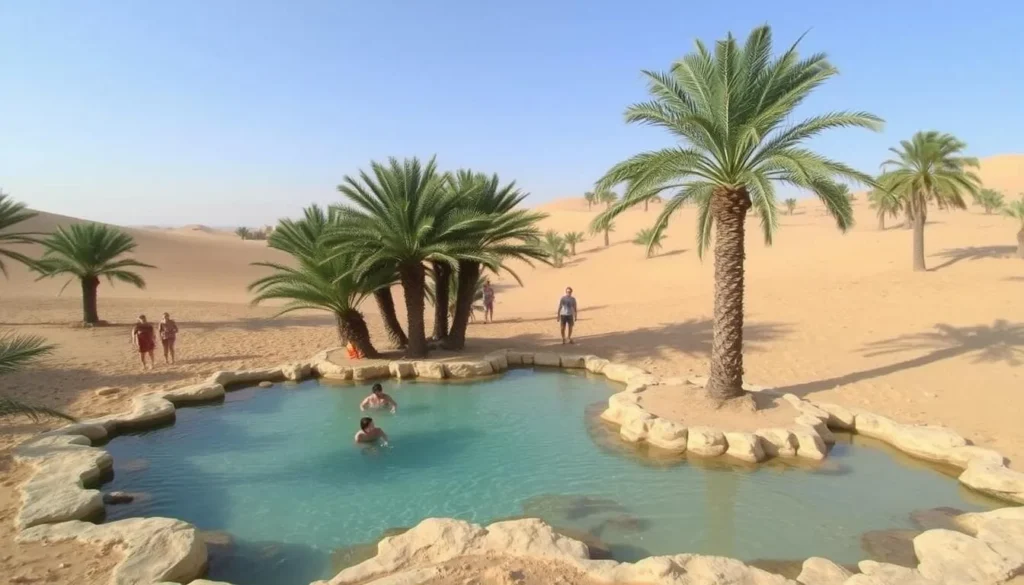
The thermal springs at Ksar Ghilane offer a refreshing break from desert exploration
Ksar Ghilane
Located about 70 km from Jebil National Park, this desert oasis features natural hot springs where you can relax after desert adventures. The site also includes a Roman fort (Tisavar) dating back to the 3rd century. Many visitors combine Jebil with an overnight stay at Ksar Ghilane.
Douz
Known as the “Gateway to the Sahara,” Douz is the main town near Jebil National Park. Visit the weekly Thursday market for traditional crafts, spices, and textiles. The town also hosts the International Festival of the Sahara in December, featuring camel races, traditional music, and Bedouin cultural displays.
Tembaine Mountain
This distinctive mountain rises from the sand dunes, offering panoramic views of the surrounding desert. Hiking to the summit provides a different perspective of the Saharan landscape and makes for excellent photography, especially at sunrise or sunset.
Houidhat Erreched
This thermal lake in the middle of the desert offers a unique bathing experience. The hot water is said to have therapeutic properties for joints and muscles, making it a perfect stop after days of desert trekking. The lake is accessible only by 4×4 vehicles through the dunes.
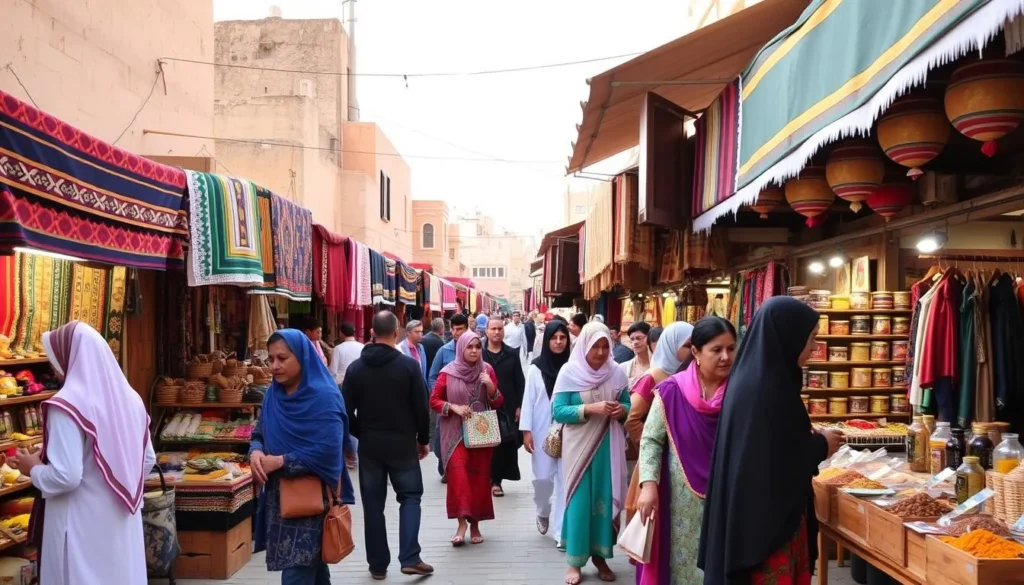
The traditional market in Douz offers authentic crafts and cultural experiences
Explore the wonders of southern Tunisia
Book guided tours that combine Jebil National Park with nearby attractions for a complete desert experience.
Conclusion: Embracing the Desert Experience
Jebil National Park offers a rare opportunity to experience the majesty and tranquility of the Sahara in its most pristine form. From the golden dunes that shift with the wind to the star-filled night skies that have guided travelers for millennia, this protected wilderness captures the essence of desert beauty.
Whether you’re seeking adventure through 4×4 expeditions and camel treks, or simply the peaceful contemplation that comes from standing amidst an endless horizon, Jebil rewards visitors with unforgettable moments. The park’s commitment to preserving endangered species like the Dorcas gazelle ensures that future generations can continue to witness the delicate balance of life in this seemingly harsh environment.
As you plan your journey to this remarkable corner of Tunisia, remember that the true value of Jebil lies not just in its stunning landscapes, but in the perspective it offers—a chance to disconnect from the modern world and connect with something more timeless. Pack your sense of adventure, respect for nature, and an open mind, and Jebil National Park will reveal its treasures to you.
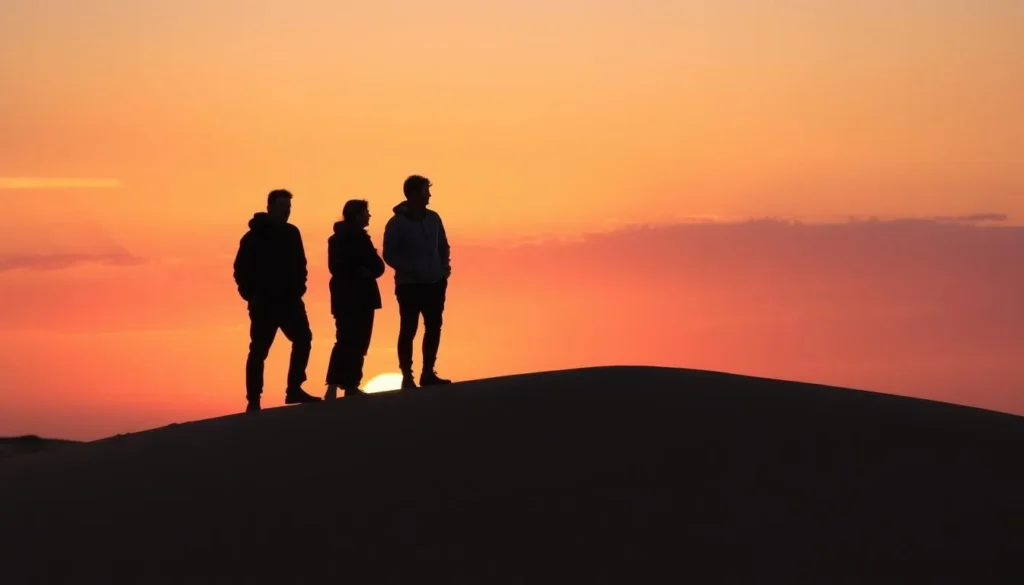
The magical experience of watching the sun set over the endless dunes of Jebil National Park
Ready for your Sahara adventure?
Start planning your journey to Jebil National Park today.
The above is subject to change.
Check back often to TRAVEL.COM for the latest travel tips and deals.
